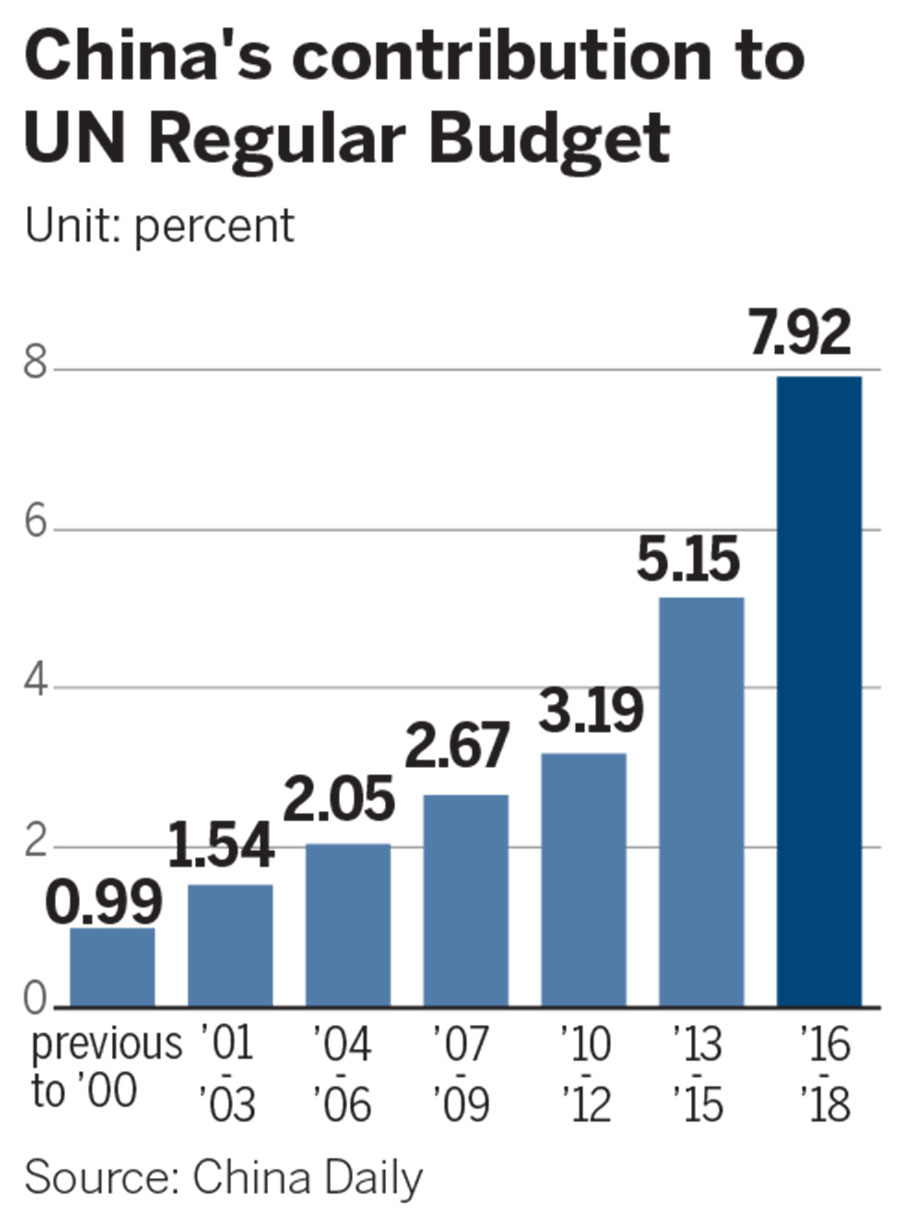China’s growing clout in international affairs has seen it rise to become the third-largest contributor to the United Nations regular budget, according to a senior Chinese official to the global body.
It is also now the second-largest contributor to the UN’s peacekeeping operations, said Wang Min, China’s deputy permanent representative to the UN. This will make China the second-largest contributor following the United States.
China’s share of the UN peacekeeping operations budget will rise from 6.6 percent to 10.2 percent, surpassing Japan’s contribution for the first time.
The country will also pay 7.92 percent of the total UN regular budget from 2016 to 2018, making it the third-largest contributor, following the United States and Japan, Wang said in an online statement posted on Dec 23.
The decisions were passed by the UN General Assembly the same day.
The UN budgeted $8.27 billion for peacekeeping in the 2015-16 fiscal year and $5.4 billion for its 2014-15 regular budget.
Wang said China needs to take on a greater share of the UN regular budget and peacekeeping operations budget because it has become the second-largest economy in the world. This obviously reflects China’s development ... and “is an important sign that its international influence has increased greatly”, he said, adding that the country will pay its dues on time, and “not a penny less”.
China’s contribution to the UN regular budget has risen steadily over the past decade, as the organization decides its members’ contributions every three years, according to the Global Policy Forum, a policy watchdog that monitors the UN’s work. In 2013, China’s contribution to the regular budget rose to 5.15 percent from 3.19 percent in 2010, making it the sixth-largest contributor.
Chen Jian, former president of the UN Association of China, said the fact that China accepts its new contribution shows it is both a large economy and is willing to take on responsibility. This is because a UN member’s contribution is calculated based on its GDP and GDP per capita. The increase will enhance China’s influence in the UN, he said. China has dispatched more peacekeeping personnel than any other permanent member of the UN Security Council.
However, Wang reiterated that the nation is still a developing country based on its GDP per capita. This fact should continue to be an important basis for assessing China’s ability to pay, he said.
“We firmly oppose any move that requires China or any other developing country to pay an amount that goes beyond their ability,” Wang added.

